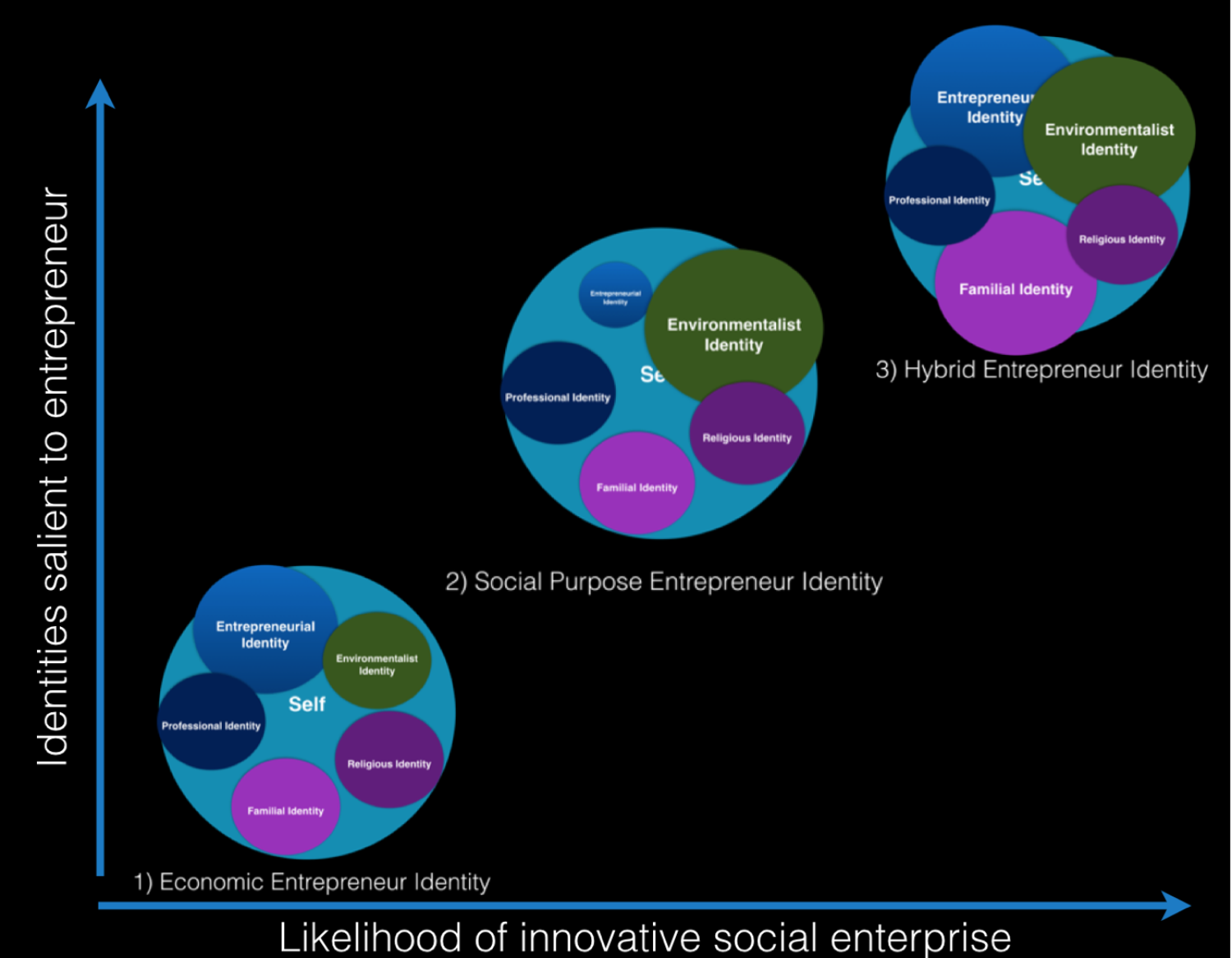An Identity-Based Approach to Social Enterprise

Social entrepreneurship has gained widespread acclaim as a tool for addressing social and environmental problems. This paper presents a theory of how and why social entrepreneurs balance the competing goals of social impact and commercial success through creating new ventures. Social psychology identity theories that have shown that most people hold multiple identities – e.g., environmentalist, religious person, entrepreneur, devoted family member. Making one identity salient versus another can alter one’s behavior. The authors use this identity salience framework to explain: (1) how commercial and social welfare goals become relevant to entrepreneurs, (2) how different types of entrepreneurs perceive the tension between these goals, and (3) what implications this has for how entrepreneurs recognize and develop social entrepreneurship opportunities. Entrepreneurs with a social purpose or hybrid entrepreneur identity are more likely than those with an economic entrepreneur identity to recognize and value opportunities related to the pursuit of social and/or environmental goals though new venture creation.
Wry, T., & York, J. (2017). an identity-based approach to social enterprise. Academy of Management Review, 42(3), 437-460. doi:10.5465/amr.2013.0506







